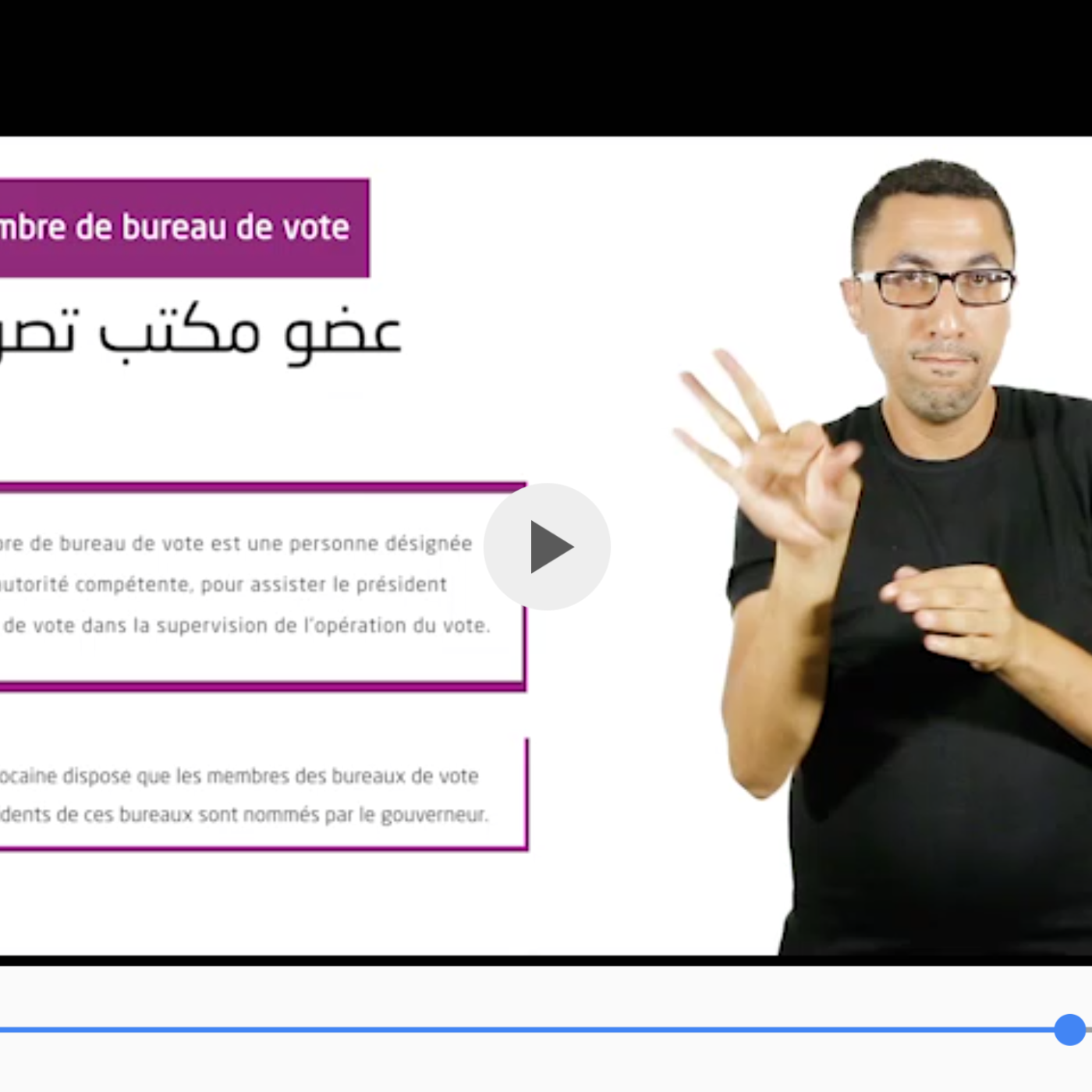Tools & Resources
Filter by
Type
Publication date
Language
Type
Publication date
Language
Election FAQ
Elections in Egypt: 2018 Presidential Election
Egyptians voted for their next president from March 26-28, while out-of-country voters went to the polls from March 16-18. These elections were the first conducted by the National Election Authority (NEA), which was established in 2017. To help you understand this important electoral process, IFES provides Frequently Asked Questions (FAQs) on Elections in Egypt: 2018 Presidential Election.
Publication
Survey
Survey Reveals Libyans Eager to Participate in Elections, Worried about their Country’s Situation
In 2017, IFES – with the support of USAID – conducted a nationwide household survey in Libya on citizens’ intentions to vote and engage in future electoral events in the Libyan transition. The survey findings are currently being used to identify priorities and enable IFES, the High National Elections Commission (HNEC), and other national and international stakeholders to more effectively increase public knowledge of, and engagement in, Libyan political and electoral processes.
February 28, 2018
News & Updates
Feature
Celebrating World Radio Day in Tunisia
On May 6, 2018, Tunisia will democratically elect 350 municipal councils for the first time. This landmark election will set the country’s decentralization into motion. In this context, IFES worked toward building the capacity of local journalists in covering the forthcoming elections in an impartial, balanced and equitable manner. Access to accurate and objective information on elections is essential for the voters to make an informed choice at the ballot box.
News & Updates
Feature
Giving a Voice to Tunisia’s Voiceless Citizens
The upcoming May 6 municipal elections in Tunisia will mark the first time citizens will democratically elect their local leaders and launch the decentralization process in the country. IFES employed a multi-pronged, nationwide, interactive voter education campaign – primarily targeting rural and traditionally marginalized voters – that reached six million voters during the voter registration period in 2017.
News & Updates
Feature
Creating Opportunities for Syrians to Shape Their Country’s Transition
Over the last several years, IFES has empowered Syrian women, youth, and marginalized groups to be part of a meaningful discourse over their country’s future. IFES has built the capacity of these groups on key topics and challenges around a democratic transition so they can contribute to policy discussions and advocate for inclusive, democratic practices. IFES has also connected participants with decision makers and transitional leaders to increase two-way dialogue between civil society and Syrian opposition leaders.
News & Updates
Feature
New Documentary Highlights Disability Rights Advocacy in Libya
On February 7, IFES launched a documentary that highlights successful disability rights advocacy in Libya and the “Rights Unite” campaign. The documentary – which was made possible through the support of the United States Agency for International Development (USAID) – explores how the Election Access Working Group, which was established with the support of IFES and USAID in 2013, began as a fragmented group of disability rights advocates and flourished as a successful advocacy group.
News & Updates
Interview/Speech/Testimony
MENA Director Testifies on Capitol Hill on “Democracy and Governance in the Middle East and North Africa”
On November 7, 2017, IFES Regional Director for the Middle East and North Africa Zeinab Abdelkarim provided testimony to the House Foreign Affairs Subcommittee on the Middle East and North Africa. She was invited to speak to Members of Congress about “Democracy and Governance in the Middle East and North Africa,” in particular about impediments to reforms and what Congress and the administration can do to better achieve democracy and governance goals in the region.
News & Updates
Feature
Technical Assistance to Election Management Bodies
Iraq has undergone dramatic change in the past decade. The U.S.-led war in Iraq that began in 2003, and the subsequent de-Ba’athification process led by the Coalition Provisional Authority, spike in sectarianism, advancement by the Islamic State (IS) and push by the Kurds for independence, all continue to impact the country’s political and security environment. It is within this complex context that the International Foundation for Electoral Systems (IFES) worked in Iraq for the 12 years, providing capacity building for Iraq’s election system from 2003 until September 2015.
News & Updates
Feature
IFES Field Staff
Mike Yard is a recognized international election administration and technology expert with over 25 years of experience. He has advised election authorities in over 15 countries and served as the International Foundation for Electoral Systems (IFES) Chief of Party in Kenya and Uganda. In this Q&A, Yard discusses his experience during South Africa’s historic 1994 general elections, the role of technology in democratic progress in Africa, and other democratic achievements on the continent.
News & Updates
Feature
New Version of Moroccan Sign Language Mobile App Released
On September 22, IFES Morocco released an updated version of its electoral lexicon mobile phone app. The app, named صوتي حقي , or “My Vote, My Right,” is an accessible civic education tool created for Moroccan citizens, particularly for those in the Deaf community. The app features live-person videos of all terms of the Moroccan sign language electoral lexicon in French, Arabic, and Moroccan sign language, as well as definitions of the terms in all three languages.











